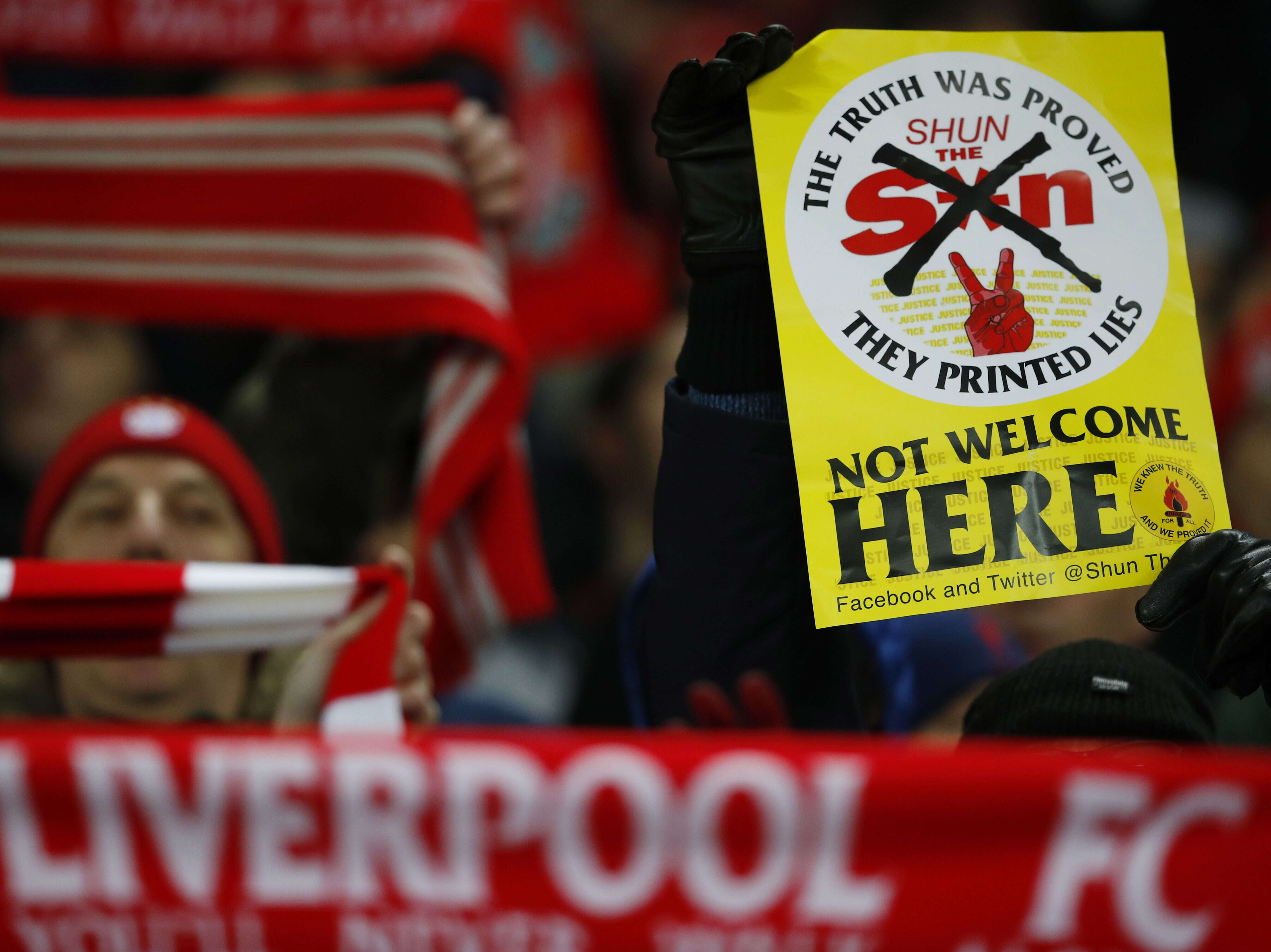
A boycott of The Sun in Liverpool led to people in Merseyside having more positive attitudes towards the European Union, a study has claimed.
The report on tabloid media influence over attitudes towards the EU claims the boycott cut Euroscepticism in the county by more than ten per cent.
It also noted a “substitution effect of Sun readership to pro-EU papers”, particularly rival tabloid the Daily Mirror.
The Sun has faced a boycott in Merseyside ever since its coverage of the 1989 Hillsborough Disaster, which saw it wrongly claim fans of Liverpool FC had behaved despicably during the crush that claimed 96 lives.
The paper has twice apologised for its coverage under former editor Kelvin MacKenzie, but continues to face a city-wide embargo in Liverpool while Sun reporters are banned from Anfield, the home of Liverpool FC.
The report, authored by London School of Economics behavioural political scientist Florian Foos and Zurich University’s Daniel Bischof, says the long-standing Sun boycott lowered Euroscepticism among the “unskilled” working class who “made up a large share of Sun readers before the disaster”.
The report said “attitudes towards the EU got significantly more positive in Merseyside during the boycott”.
Liverpool, The Wirral and Sefton in Merseyside all voted Remain.
The study, which used data from the annual British Social Attitudes survey and is available online, added: “…the boycott of the most important Eurosceptic newspaper – The Sun in Merseyside as a consequence of The Sun’s reporting on the Hillsborough sporting disaster – led to a decrease of Euroscepticism in Merseyside, which we estimate to amount to around 11 percentage points.
“Moreover, our results suggest that The Sun boycott in Merseyside might have decreased the Leave vote share in Merseyside in the 2016 EU referendum.”
The authors said the study showed “sustained media campaigns on emerging issues can have large, lasting, and ultimately, consequential effects on public opinion, and public policy”.
Analysis of national newspapers by Press Gazette in June 2016 found a strong pro-Brexit bias among the UK’s most read titles. The research found that The Sun had been “strongly biased” in favour of leaving the European Union in terms of its front page coverage.
The Sun declined to comment for this article.
Picture: Reuters
Email pged@pressgazette.co.uk to point out mistakes, provide story tips or send in a letter for publication on our "Letters Page" blog
